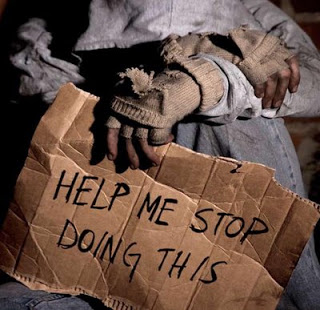
Recently, Jay Leno has attracted more attention to the controversy that surrounds Ottawa’s Inner City Health “wet” program by poking fun it for doling out wine to many of the city’s homeless alcoholics as a method of treatment.
Some of the participants in this Canadian treatment program are drinking up to 72 ounces or 3 bottles of wine each day depending on the severity of their addiction. Basically, chronic alcoholic residents of these programs are offered varying amounts of wine with alcohol content ranging from 0{c754d8f4a6af077a182a96e5a5e47e38ce50ff83c235579d09299c097124e52d} – 12.5{c754d8f4a6af077a182a96e5a5e47e38ce50ff83c235579d09299c097124e52d} every hour between 7:30 a.m. and 9:30 p.m.
Despite fairly positive research on the effectiveness of these programs, most people cannot fathom how feeding an alcoholic wine could possibly treat alcoholism. For instance, Cyril Morgan, director of the Welcome Hall Mission in Montreal, Quebec, is not convinced that this method of treatment actually works. “It doesn’t wean them off, it pacifies them for the time they’re in the program,” he said. “Once you take them out of that environment, then what?”
Those in favour of the program boast about its ability to give some quality of life back to severe alcoholics. For many, it could mean the difference between life and death. In addition, research on such programs has shown that some individuals have quit drinking completely and many others have greatly improved their health and hygiene. It also means that hardcore alcoholics no longer have to resort to drinking harmful substances such as paint thinner, mouthwash or aftershave. Essentially, the program works toward stabilization in order to progress toward treatment of other aspects of their lives.
“According to Wendy Muckle, a nurse and director of Ottawa City Health, said the program — which also exists in Toronto and Hamilton, Ont. — is often misunderstood, conjuring up images of taxpayers paying for homeless people to get drunk.”
Muckle also states that research has proven that 1 out of every 55 people quit drinking each year because of this program. Although the success rate is not exactly extraordinary, it does mean that one more person is taken off the street and given their life back. Critics may not realize that these kinds of programs are directed toward individuals that may have spent the past 35 years drinking themselves into unconsciousness on the street.
“Montreal has between 3,000 and 5,000 homeless people, with each one costing taxpayers on average $55,000 a year in health, corrections and social services, according to a joint report from Simon Fraser University, the University of British Columbia and the University of Calgary.”
Meanwhile residents of this program in Ottawa pay about $80.00 each month for their booze and cigarettes and any small amount of monthly government assistance remaining is paid directly to the program to cover board and lodging expenses.
Regardless of the cost savings, the answer to the question as to whether or not wet programs are effective seems clear. These programs take the worst of the worst alcoholics off the street and alter their lives dramatically. “Daily police pickups, ambulance rides and emergency room visits are replaced with harm reduction and far better care.” Not to mention the fact that each and every person that successfully transitions into recovery makes this program effective. Personally, I cannot comprehend how anyone might find this program comical in any way.
Ottawa alcoholism program still controversial, despite signs of progress
© www.understandingaddictions.com
SOURCE: Understanding Addictions – Read entire story here.





